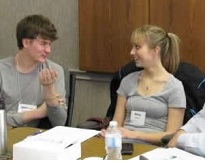Concluded Projects
These projects were conducted by the RTC/IL in previous years.
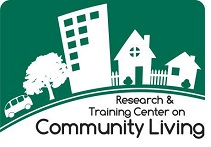 Research and Training Center on Community Living
Research and Training Center on Community Living
This center developed evidence-based programs, policies and practices to further community living among people with disabilities.
Employment Systems Change Coalition
The Center worked with other disability organizations to improve employment opportunities for Kansans with disabilities through a grant from United Healthcare.
Resilience Study
This research identified the personal and environmental factors that support resilience in people with disabilities who live in rural communities.
Medicaid Functional Eligibility Instrument
We partnered with KU's Center for Research on Aging and Disability Options (CRADO) to develop a Medicaid Functional Eligibility Instrument (MFEI) for the state of Kansas, along with a training program for assessors.
Work Group on Community Living
The KU Work Group on Community Living (WGCL) brought together the expertise of researchers at the University of Kansas who have built four specialized programs to benefit people with disabilities and older adults.
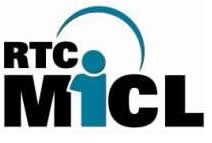 RTC on Measurement and Interdependence in Community Living
RTC on Measurement and Interdependence in Community Living
MICL focused on enhancing community participation by people with disabilities. Individual research projects address a range of topics, including healthcare access, the effectiveness of CIL services, personal assistant training and more.
Home Visitability
This exploratory study considered the impact of non-visitable homes on wheelchair users. This research was funded by a Switzer Fellowship from NIDRR.
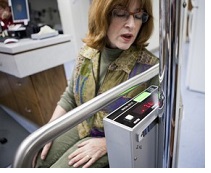 Accessible Scale Study
Accessible Scale Study
This study explored the availability of wheelchair-accessible scales in Lawrence, Kansas, home of the University of Kansas.
Accommodations Training
This project was designed to improve post-secondary students’ self-advocacy skills and knowledge about their legal rights and responsibilities under the Americans with Disabilities Act (ADA). College students who have disabilities don’t always know what they are entitled to under this law, nor how to request accommodations from their teachers or institutions.
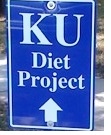 KU Diet Project for People with Physical Disabilities
KU Diet Project for People with Physical Disabilities
This weight loss program was provided for people with physical disabilities in Wichita. This program is based on an the KU Diet Project that focused on adults with developmental disabilities.
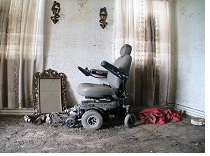 Disaster and Emergency Preparedness
Disaster and Emergency Preparedness
The RTC/IL has conducted numerous research projects to help people with disabilities prepare for and survive disasters.
In the Nobody Left Behind project, we worked with organizations throughout the United States to assess whether disaster plans and emergency response systems met the needs of people with mobility impairments. This was funded by the National Institute on Disability Rehabilitation Research and also by the Centers for Disease Control and Prevention through the Association of Teachers of Preventive Medicine.
We have also produced a wide variety of resources and trainings for disaster preparedness.
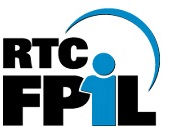 The Research and Training Center on Full Participation in Independent Living
The Research and Training Center on Full Participation in Independent Living
The Research and Training Center on Full Participation in Independent Living (RTC/FPIL) and the Research and Training Center for Underserved Populations were funded research with policy significance to persons with disabilities. These specialized centers studied independent living needs assessment for underserved populations, assistive technology skills training for consumers with psychiatric disabilities, service accommodation for consumers with cognitive and intellectual disabilities, and facilitation of effective board skills for underserved disability populations.
Collaboration
Throughout our research and knowledge dissemination activities, we have collaborated with other individuals and organizations. For example, we teamed with the Independent Living Research Utilization (ILRU) Program of TIRR to improve access and use of independent living research information through the Research Information for Independent Living (RIIL) project, which included several webcasts and the interactive internet database that contains research summaries on key independent living-related topics.
